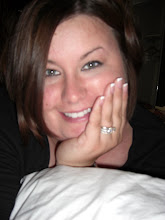In this chapter we learned about Social Cognitive Theory. It was developed by Albert Bandura to help explain things about an individual like their personal characteristics and behavioral patterns. We learned that by using self-control and self-regulation skills people have control of their actions. The self regulatory process consists of forethought, performance, and self-reflection.
Forethought involves goal setting and planning ways to achieve these goals. The students must learn to be self-efficient. Self-efficient means they are capable of meeting demands of certain tasks, like educational goals. Performance involves learning techniques and focusing on the task at hand. Often students will record (mentally) new behavior or study patterns for later review. Self reflection involves evaluating that recorded behavior and determining ways to improve the results of the learning process.
According to the text, self-regulation skills can be learned best by following this four-step model:
- observe a model that exhibits a skill and verbalizes performance standards and motivational beliefs.
- Reproduce the general form of the model's behavior
- Exhibit the modeled behavior under similar conditions without the model present
- Adapt the modeled behavior to different tasks, settings and conditions
Self-regulation and self-efficacy are both directly related to one another and performance and achievement of the individual.
We also learned that the use of memory- directed learning or studying techniques such as mnemonic devices and rehearsal vary in their effectiveness. Rehearsal is not as effective since it typically is used as direct memorization of the facts. The facts are generally not listed word-for-word in the test, nor in "real-life." Mnemonic devices are more helpful in that they require built-in retrieval ques. Rhymes, acronyms and keywords are often used as mnemonic devices.
Comprehension tactics that were discussed in the chapter consist of self-questioning, peer-questioning, note taking and concept mapping. Self and peer questioning can often be used simultaneously in class. These are all tactics I plan to include regularly in my classroom.
*How Will I Benefit*
I will use this blog to refer back to the lessons learned in this course. I think that by providing quick and shortened summaries of the chapter, I will be better able to remember the points discussed. I do plan to keep this blog after this course and refer back to it to see my progression in understanding how to be an effective teacher.
*Following the Blog*
This week, Kiri has written about her lesson plans. She started off by saying what she typically plans to do, and then has to re-vamp the whole week to allow for what her school and state requirements entail. The whole thing is very frustrating. She writes that it is a lot harder than it looks, and for other aspiring teachers to not be fooled.
I learned that in Kiri's class, they learn a letter each week. At the beginning of each morning, Kiri sings the "Good Morning" song, and then replaces the first letter of the students name with the letter of the week. She writes that the students giggle and seem to really enjoy it. I love this idea. It is something so simple- just one more reason I can not wait to have my own class!
*This Week in the Discussion Boards*
In the DBs this week, our groups are posting their activities and papers. I think that it is very interesting to review the other projects and see how they plan to incorporate the things we are learning into their lesson plans. There is another group that chose kindergarten as their group. They are teaching the students about weather. Their project seems very involved, and while I don't think I would do it the way they are planning, I can not wait to see their final activity. Its amazing to me to see the variation in interpretations of the information we learn.
*Question of the Week*
The question for this week is: Find a school district's website outside of your hometown and/or Springfield (or the city you reside in). Copy and paste (or type) the link into your blog. Answer the following questions about the school district in your blog:
http://www.rogers.k12.ar.us/
Would you want to teach in this particular school district? Yes.
What makes this school district stand out from others that you found on the Internet? I hope to move here and teach one day is why I chose this district, but it is in the top 5% of schools in the county.
Are there specific features that this school district has to offer that you hadn't thought of before?
Yes. A teacher to student ratio of 1:16. I think that is appropriate, and much more desirable than other school districts. They also have 14 elementary schools.
Would you ever consider applying for a job at this school district? Why or why not? Yes. I hope to move there one day. I think that of all the districts in the area, this is the most inviting. You can tell they has a strong sense of pride and rightfully so. On their web page, they have a whole page dedicated to their "pride points."
Based on what we've learned so far in this class, how does this school district measure up?
I think this school measures up very well. Their test scores are above average and they have a lot of "bragging rights."


No comments:
Post a Comment